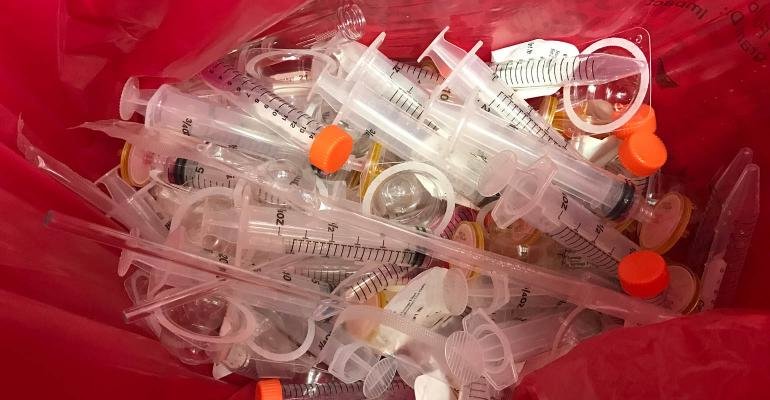60 tons of hazardous medical waste pile up daily in southern Tehran

TEHRAN – Some 60 tons of medical waste containing infectious toxic substances, is being stockpiled daily on Arad mountain in Kahrizak, southern part of the capital, deputy supervisor for Tehran City Council Afshin Habibzadeh has announced.
Medical waste generating at health care facilities, includes a large component of general waste and a smaller proportion of hazardous waste, which contain infectious agents, toxic chemicals or pharmaceuticals, radioactive and genotoxic.
All individuals exposed to hazardous health-care waste are potentially at risk, including those within health-care establishments that generate hazardous waste, and those outside these sources who either handle such waste or are exposed to it as a consequence of careless management.
There is no legal obligation for Tehran Municipality to properly dispose infectious medical wastes and, according to the waste management law, the hazardous waste must be separated, treated and disinfected by its producer, Mehr quoted Habibzadeh as saying on Monday.
“The Ministry of Health has announced that all infectious medical wastes are disinfected by autoclaves, strong heated containers used for chemical reactions and other processes using high temperatures, and the Municipality must take steps to dispose them, while based on the waste management law, the Department of Environment (DOE) must confirm whether the hazardous waste are disinfected or not,” he further explained.
Even after the DOE’s approval, the waste is not considered normal waste, however, the DOE has not yet endorsed the safety of these wastes, he highlighted, adding that therefore, as long as the DOE has not approved the wastes being harmless, in accordance with the waste management law, medical wastes are still considered infectious.
He went on to explain that the Ministry must either comply with the law requirements in order to treat and dispose wastes generated in hospitals or clinical facilities at its own expense, or, if this is not possible, the Municipality is ready to perform the process in case the Ministry pay the costs.
“Unfortunately, the Ministry of Health has not taken any steps toward the issue already, which caused the capital’s Municipality financial problems,” he lamented.
Habibzadeh also added that in spite of the fact that there are no legal requirements, we are ready to provide the Ministry of Health with landfills and required infrastructure such as water, electricity and etc.
Referring to Arad mountain as a landfill where some 60 tons of hazardous medical waste is being dumped each day, he stated that there will be no capacity in the mountain by the next six months.
“Nowhere in the world are dumping infectious waste, it must be burned,” he noted, adding, hence, medical waste incineration devices are needed, the Municipality will take the measure in this regard, only if the Ministry of Health signs the contract and pay the costs.
He further called on the Ministry of Health whether to fund the proper disposal of infectious wastes, or to construct a waste management unit to take action on disinfecting them, then the municipality will take measures to dispose them.
Earlier in July head of the waste management working group affiliated to Department of Environment Kiyoumars Kalantari said that some 115 tons of medical waste is being generated on a daily basis in the province of Tehran. He also regretted that despite the efforts made by the Ministry of Health, except for a few of the hospitals, medical waste is not being regulated in other health-care providing centers.
According to the U.S. Environment Protection Agency, improper management of discarded needles and other sharps can pose a health risk to the public and waste workers. For example, discarded needles may expose waste workers to potential needle stick injuries and potential infection when containers break open inside garbage trucks or needles are mistakenly sent to recycling facilities. Janitors and housekeepers also risk injury if loose sharps poke through plastic garbage bags. Used needles can transmit serious diseases, such as human immunodeficiency virus (HIV) and hepatitis.
Measures to ensure the safe and environmentally sound management of health care wastes can prevent adverse health and environmental impacts from such waste including the unintended release of chemical or biological hazards, including drug-resistant microorganisms, into the environment thus protecting the health of patients, health workers, and the general public.
FB/MQ/MG
Leave a Comment